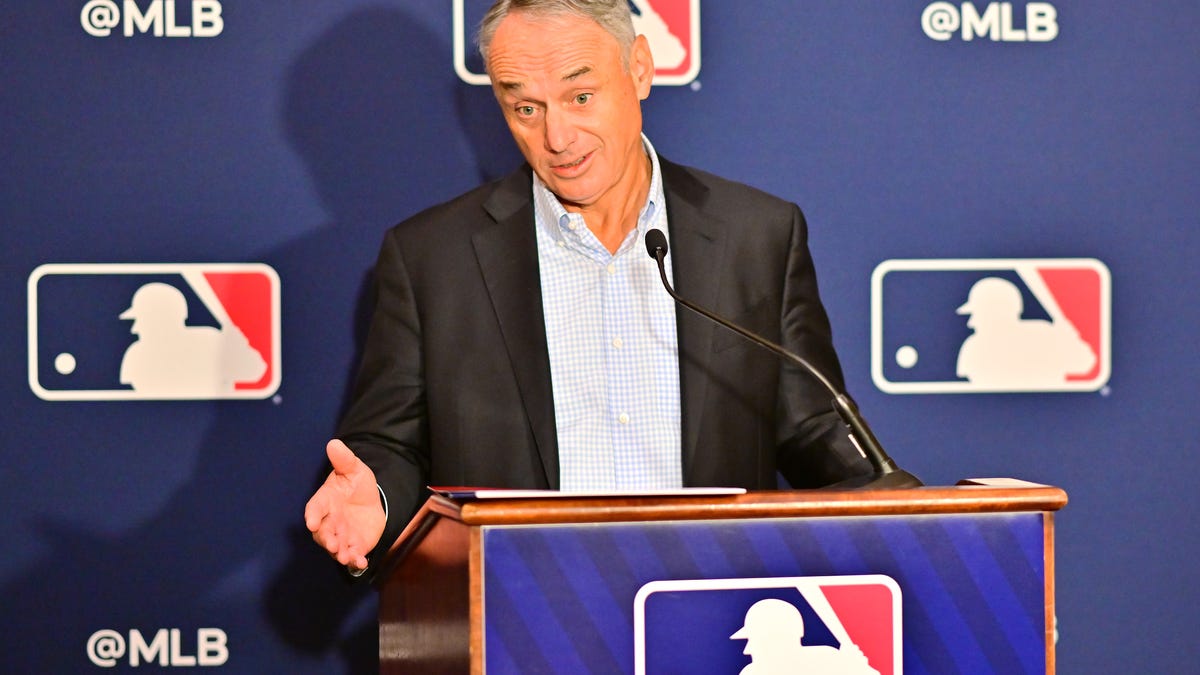

MLB commissioner Rob Manfred claimed that while MLB and the MLBPA were far removed from an agreement on several key topics, one topic everyone supposedly agreed on was that minor leaguers were not paid well enough.
His public statement last week:
“[MLB and the MLBPA] agree that a key priority is getting young players paid more. We agree and we actually share that goal. That’s why we’ve proposed to increase pay to young players through significantly increased minimum salaries and accepting the concept brought forward by the players of a bonus pool for these best young stars. Under our proposal on the table, every single pre-arbitration player would be better off than under the previous agreement.”
Every player? Every single pre-arbitration player? Wow that’s a pretty drastic shift in tone. I’m impr—
*cue Curb Your Enthusiasm theme song*
I understand that the arbitration timeline is based on a player’s service time on an MLB roster, so I understand Manfred wasn’t talking specifically about minor leaguers in his statement, but do you know what comes before playing on an MLB roster? The minor leagues. The minors are like pre-pre-arbitration in that sense. Do you know which players would stand to benefit the most from a small increase in wages? Minor Leaguers by a mile. So, let’s attack both of these proposals listed in the tweets above one at a time.
The first proposal states that minor league players should stay unpaid during spring training because they “obtain the greater benefit from the training opportunities.” Exposure is great, but you know what’s better than exposure? Money, and playing in spring training isn’t really much exposure anyway. Sure, they get looked at by the major league front office and coaching staff, but the “training opportunities?” Those probably aren’t as great as you’d think. At most, they get a month of training from the MLB club’s coaching staff. That’s cool, but also in a situation where 75 players are on a spring training roster — nearly three times the size of an in-season MLB roster — and most of the team’s coaching staff is going to be focused on getting its top-tier players in playing shape for the regular season, those minor leaguers trying to make a name for themselves will likely find themselves pushed to the side and told “Alright, show us what you learned” when they likely haven’t learned much at all.
Not to mention, players get exposure during the MiLB season. This proposal seems to think that a player’s best opportunity to make a Major League roster is during a month-long period that Manfred himself says players need in order to get into baseball shape.
They’re already at a disadvantage coming into spring training because they haven’t faced live hitting or pitching since the season prior, but this is when they need to prove they should take a Major League roster spot away from someone else? No. Do you think MLB teams just entirely forget about their farm system after spring training? “Oh, it’s March 31, we don’t care about any of our prospects now.” That’s ridiculous. Teams are always watching their minor leaguers and the minor leaguers on other teams. When a rebuilding team trades its star player for prospects, are they just shooting in the dark hoping they picked the right ones? No. They know who to ask for because they’ve watched those players. That’s exposure outside of spring training, so I guess MiLB players shouldn’t ever get paid because really, their whole careers are exposure to MLB teams looking to give them a roster spot. Get the hell out of here with that. It’s stupid.
The second proposal is just as ridiculous. Minor Leaguers get paid pennies. All they want is to get a livable wage as they work their way up the ranks toward the Majors, but that’s too much to ask for. According to MIT’s living wage calculator, nobody in the United States, no matter where they live, can meet basic needs on less than $26,225 a year. The U.S. poverty line in most states is marked by a threshold of $12,880 annually. Most minor leaguers make between $8,000 and $14,000.
What’s MLB’s solution? Well, they can’t live in poverty because of us if we don’t give them those jobs in the first place.
*CLAP* *CLAP* *CLAP* What a genius plan! Solve the problem by getting rid of it entirely! They can’t complain about wages if they have no wages to begin with! Brilliant!
This is like going to your landlord and saying, “Hey, it’s the middle of winter and we haven’t had power the last four weeks. These are unlivable conditions. Can you help us out?” Then your landlord replies, “Of course,” and they burn down your house. “What? You said the conditions were unlivable, so we got rid of the conditions.” How about you just fix the conditions? “Well, see, that would take money, and we’re already working on our own house, so no can do. If you didn’t like your house without power, you could’ve left anytime.”
Minor League Baseball is the bread that feeds the Majors. It is what keeps Major League Baseball alive and capable of providing fans with the best possible talent at all times. Without the minor leagues, it’s likely that the quality of play would decrease in future years. It’s already likely that hundreds of players with Major League-level talent have walked away from the game because of the unlivable conditions faced in the Minor League system. Refusing to pay these guys for service time at a higher level doesn’t help keep those talented players in the system, and getting rid of MiLB players certainly doesn’t help keep them around. If owners are unwilling to take a small chunk out of their paycheck to give their employees a livable wage, then I don’t know if there’s an answer for the poverty problem in MiLB. These proposals certainly aren’t the answer though.